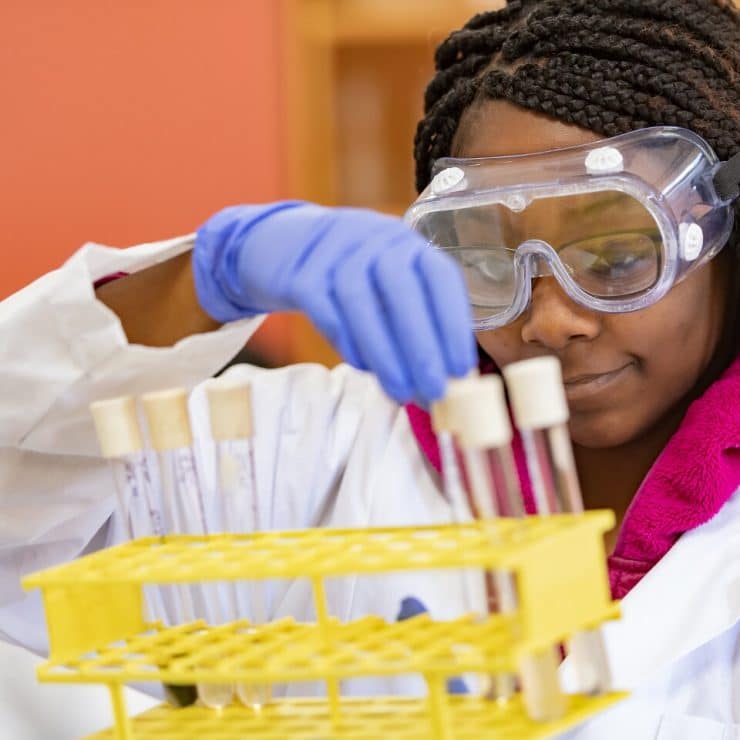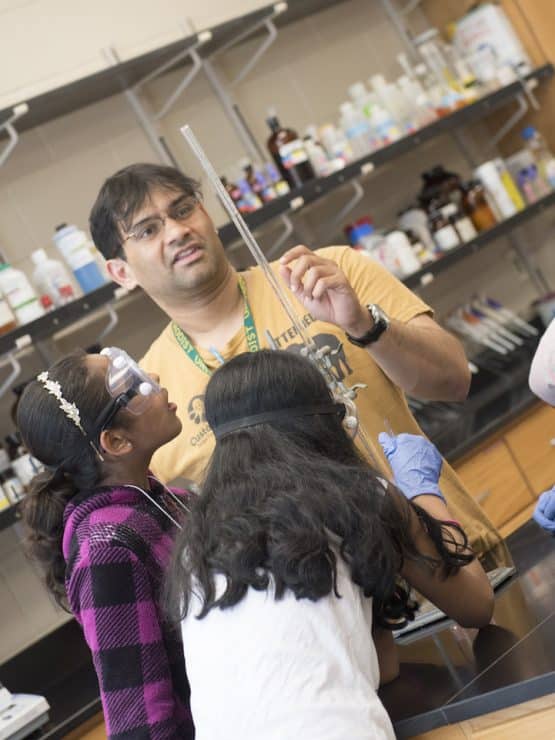
Chemistry
Methodist University’s Chemistry program prepares students for the central-most of all the natural sciences. Our program is proud to host a low student-to-faculty ratio, providing tremendous opportunities for personal development by interacting directly with the professors. The program is very progressive, challenging, and exciting with excellent faculty and staff who are supportive of the students’ educational endeavors. Research in natural products and analytical forensic chemistry provides further values to the students’ future career be it graduate school, professional school, or industry.
Common Career Paths
Earning a Chemistry degree presents a wide range of opportunities for graduates. Some of the most popular career paths for those with a Chemistry degree include chemical technician, toxicologist, chemistry teacher, water chemist, analytical chemist, synthetic chemist, quality control chemist, organic chemist, forensic scientist, and hazardous waste chemist.
Common Salary Ranges for Graduates
Since there’s a variety of careers that Chemistry graduates go into, it’s difficult to nail down a specific salary. However, the U.S. The Bureau of Labor Statistics reports the average annual salary for chemists in North Carolina in May 2021 to be $77,670 and $89,710 for chemistry teachers.
Average Tuition Cost
The average cost for an incoming residential freshman to attend MU is less than $18,000 – similar to the cost of attending one of the big-box public schools, but with the enhanced value of a highly-regarded private school with a 12:1 student-to-faculty ratio.
While tuition varies, depending on a student’s financial aid package, it’s important to know that the average financial award for an incoming residential freshman at MU is more than $34,000.
Financial Aid & Scholarships
More than 97% of MU students receive some form of financial aid, with the University offering more than $24 million annually to students for scholarships. If a student is active military, family of active military, or a veteran, they may also qualify for MU’s military education benefits.
Available Concentrations in the Chemistry Major
Interested in Methodist University’s Chemistry program?
If you have questions, see the FAQ below or reach out to Dr. Stephanie Hooper Marosek at her contact info at the bottom of the page. If you’re ready to apply today, click the button below!
Meet Stephanie Breitenbach, Recent Graduate
Frequently Asked Questions
Earning a Chemistry degree presents a wide range of opportunities for graduates. Some of the most popular career paths for those with a Chemistry degree include chemical technician, toxicologist, chemistry teacher, water chemist, analytical chemist, synthetic chemist, quality control chemist, organic chemist, forensic scientist, and hazardous waste chemist.
Our Chemistry major consists of 60-61 credits. View our Curriculum Requirements page to see more.
Mission
The mission of the department of chemistry and physical science is to establish a culture of excellence in preparing our students in the area of physical science (both majors and non-majors) for their careers and graduate school opportunities. The department will instill a solid fundamental knowledge of the physical sciences within our students, and further enhance that knowledge through scientific applications and experiences.
Students will develop critical and active thinking, problem-solving, and data analysis abilities by being involved in a hands-on scientific discovery process that is related to theory and real life through student-faculty research projects. For non-majors, we strive to enlighten the wonders of science that will raise awareness in advance technology and the global environment, how to carry out and record lab experiments, and how to interpret experimental results.
Goals
Methodist University Chemistry majors will attain a broad and solid foundation in chemistry that will enable them to compete and succeed in graduate schools, professional schools and chemical industries by gaining knowledge in advanced course work, learning experimental techniques using modern instrumentation, effectively analyzing and interpreting scientific data, and learning to communicate orally and in writing.
Dr. John Dembosky Discusses Climate Change
Contact
Stephanie Hooper Marosek, Ph.D.

